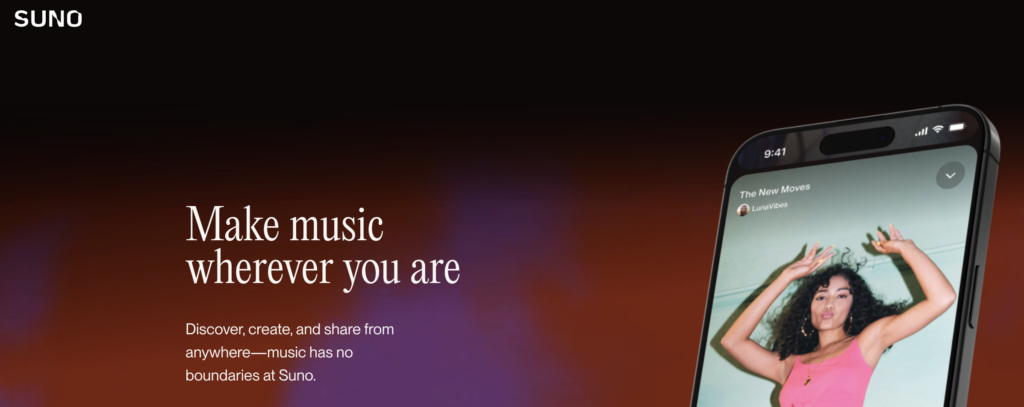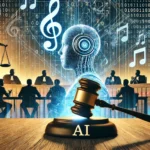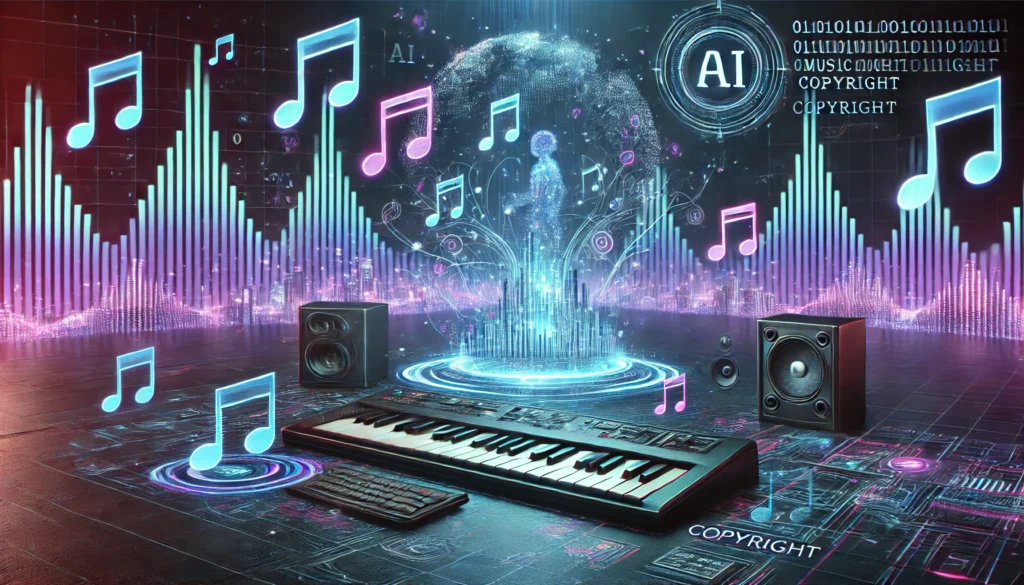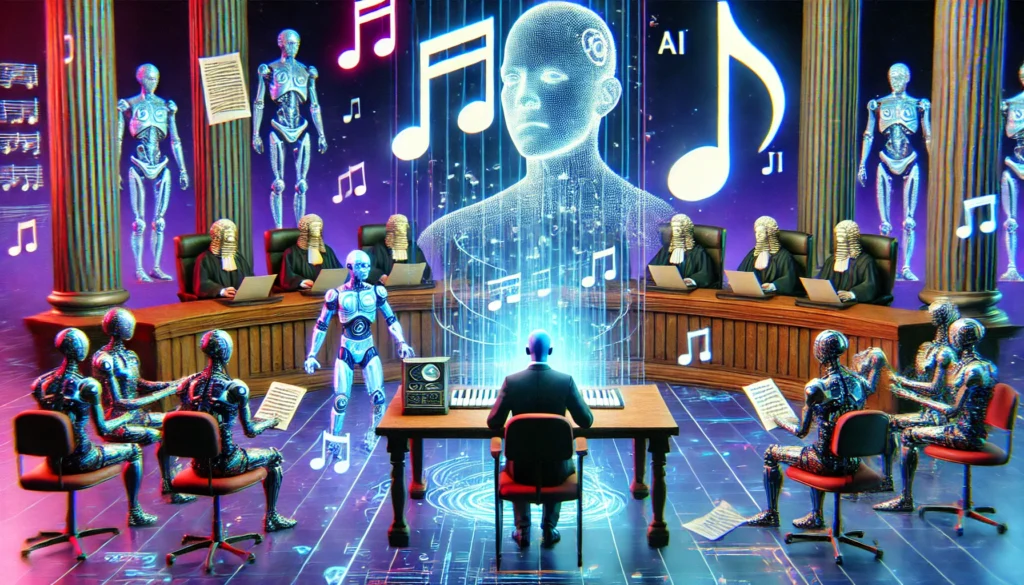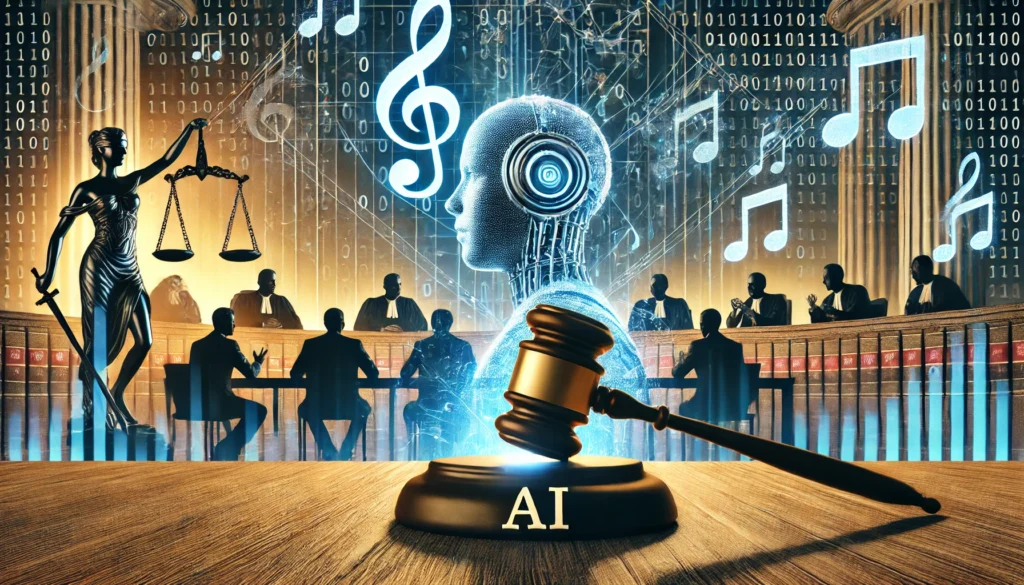In a move that highlights both the rapid advancement and ongoing controversies in AI music generation, Amazon has integrated Suno’s technology into its Alexa platform despite recent admissions from the AI music startup about training on copyrighted material. The Suno AI and Amazon partnership comes at a time when Suno, valued at an impressive $500 million, finds itself navigating complex copyright waters in the evolving artificial intelligence landscape.
ALSO: Who Owns AI Music?
The Amazon-Suno Partnership: What You Need to Know
Amazon’s decision to incorporate Suno’s AI music generation capabilities into Alexa represents a significant milestone in bringing creative AI tools to mainstream consumers. With this integration, Alexa users will gain access to on-demand music creation features powered by Suno’s sophisticated generative AI technology.
The partnership enables Alexa users to:
- Create custom songs through simple voice commands
- Generate music across various genres and styles
- Produce unique musical content without traditional production skills
This move by Amazon signals a growing trend of major tech companies embracing AI-generated creative content as a valuable consumer offering, despite lingering questions about the technology’s development practices.
Suno’s Copyright Controversy Explained
At the center of this story is Suno’s recent acknowledgment that its AI models were trained using copyrighted music—a practice that has drawn criticism from artists, labels, and industry advocates. The admission raises important questions about how AI companies acquire and use training data.
The Training Data Question
Suno has confirmed that its technology learned from existing musical works, including those under copyright protection. This practice, while common in AI development, has become increasingly controversial as generative models advance to create outputs that can closely mimic the style and quality of human-created works.
The key issues at stake include:
- Whether permission was obtained from rights holders for the use of copyrighted works in training
- How the AI uses this training data to generate new content
- The legal distinction between training on copyrighted works versus creating derivative works
Industry Pushback
The music industry has been particularly vocal about AI companies using copyrighted content as training material without proper licensing or compensation. Major labels, publishers, and artist advocacy groups have raised concerns that such practices:
- Potentially violate copyright law
- Devalue human creativity and artistic labor
- Create unfair competition by using artists’ work without compensation
ALSO: Can You Copyright AI Music? Understanding Legal Rights & Ownership
Why Amazon’s Decision Matters
Amazon’s choice to partner with Suno despite these controversies reflects the complex calculus major platforms face when adopting cutting-edge AI technologies. The integration suggests that Amazon has determined that the benefits of offering AI music generation outweigh the potential reputation risks associated with copyright concerns.
The Business Perspective
From a market standpoint, Amazon’s move can be interpreted as:
- A strategic bet on consumer demand for creative AI tools
- An attempt to keep pace with competitors in the AI space
- An implicit endorsement of Suno’s approach to AI training and development
Legal and Ethical Considerations
The partnership raises questions about how major platforms evaluate the legal and ethical foundations of AI technologies before adoption:
- What due diligence process did Amazon apply to Suno’s technology?
- How will responsibility be shared if legal challenges arise?
- What precedent does this set for other AI technologies with similar training practices?
Suno’s Meteoric Rise to $500M Valuation
Suno’s journey to becoming a half-billion-dollar company has been remarkably swift, reflecting investors’ confidence in AI music generation as a transformative technology. The startup has attracted significant venture capital despite—or perhaps because of—its ability to create surprisingly high-quality musical outputs.
The valuation represents:
- Strong investor confidence in the future of AI-generated creative content
- Recognition of technical achievements in music generation quality
- Belief in the market potential for accessible music creation tools
The Future of AI and Music Creation
The Suno AI and Amazon partnership points to a future where AI-generated music becomes increasingly integrated into everyday technology experiences. However, this future remains contested terrain, with ongoing debates about:
Copyright Law Evolution
Current copyright frameworks were not designed with AI training in mind, creating significant gray areas that courts and legislators are only beginning to address. The music industry is actively pushing for clearer rules that protect creators’ rights in the AI era.
Artist Compensation Models
New business models may be needed to ensure fair compensation for artists whose work contributes to AI training datasets. Proposals range from licensing frameworks to royalty systems for AI-generated content.
Consumer Adoption and Acceptance
The ultimate success of AI music generation will depend on whether consumers embrace these tools and the creative outputs they produce. Questions remain about whether listeners will value AI-generated music similarly to human-created works.
What This Means for Content Creators
For musicians, producers, and other content creators, the mainstreaming of AI music generation through platforms like Alexa represents both opportunity and challenge:
- New creative tools become accessible to a wider audience
- Market disruption potentially affects professional opportunities
- Evolving expectations around originality and creative process
The Broader AI Copyright Landscape
Suno’s situation reflects a pattern seen across the generative AI industry, where companies have frequently trained models on copyrighted materials without explicit permission, citing various legal theories including fair use.
Similar controversies have emerged in:
- Image generation (with visual artists’ work used without permission)
- Text generation (with authors’ and journalists’ work incorporated into training data)
- Code generation (with open source and proprietary code used for training)
Conclusion
Amazon’s integration of Suno’s AI music technology into Alexa, despite the company’s admission of training on copyrighted material, highlights the complex interplay between technological innovation, copyright law, and platform responsibility in the AI era. As generative AI continues its rapid advance into creative domains, the tension between innovation and rights protection remains unresolved.
The Suno AI and Amazon partnership suggests that major platforms are willing to embrace controversial AI technologies when they offer compelling consumer benefits, even as regulatory frameworks struggle to keep pace. For the music industry, content creators, and consumers alike, this development signals that AI-generated creative content is moving firmly into the mainstream—bringing both new possibilities and challenging questions about the future of creative work.

